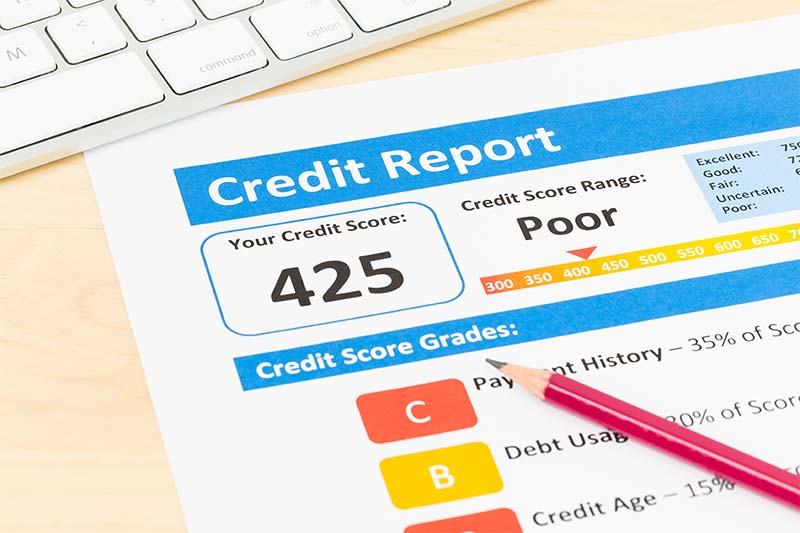Bankruptcy is a significant financial decision with enduring repercussions. As individuals and businesses contemplate this route to financial solvency, a pressing question looms large: how long will the mark of bankruptcy linger on the credit report?
The Importance of Credit Reports and Bankruptcy
After filing for bankruptcy, individuals may experience significant effects on their credit reports and credit scores. Individuals must actively manage their credit after bankruptcy to rebuild their financial stability.
Bankruptcy can lower credit scores by a significant amount, making it difficult to qualify for new lines of credit or loans. Steps can be taken to improve credit post-bankruptcy, such as obtaining a secured credit card and making timely payments.
Rebuilding credit after bankruptcy is essential for financial stability. Individuals should focus on making on-time payments, keeping credit card balances low, and not applying for too many new lines of credit. By practicing good credit habits, individuals can gradually improve their credit scores and attain financial stability post-bankruptcy.
What is a Credit Report and What is it For?
A credit report is a detailed summary of an individual’s credit history and financial behavior, compiled by credit bureaus.
Its purpose is to provide lenders and other financial institutions with information about a person’s creditworthiness, including their payment history, amount of debt, and any derogatory marks, such as late payments or bankruptcies.
To obtain a credit report, individuals can request a free copy once a year from each of the three major credit bureaus:
- Equifax
- Experian
- TransUnion
Individuals should review the report for accuracy, as errors can negatively impact one’s credit score and ability to secure loans or favorable interest rates.
Monitoring a credit report regularly is vital for identifying and disputing any inaccuracies. If incorrect information is found, individuals should notify the credit bureau and provide evidence to support their claim.
Incorrect information on a credit report can result in a lower credit score, which can impact one’s ability to borrow money or access financial products. Being proactive about monitoring and disputing inaccuracies is essential for maintaining a healthy credit profile.

Duration of Bankruptcy's Appearance on Credit Reports
Chapter 7 bankruptcy will appear on your credit report for 10 years, while Chapter 13 bankruptcy will appear on the report for 7 years. The difference in timeline is due to the nature of the two types of bankruptcy.
Chapter 7 bankruptcy involves the liquidation of assets to pay off debts, resulting in a longer duration on the credit report. Chapter 13 bankruptcy involves a repayment plan over 3-5 years, which leads to a shorter duration on the credit report.
The factors that determine the duration of bankruptcy on a credit report include the type of bankruptcy filed, the laws and regulations of the specific state, and the individual’s credit history before filing for bankruptcy.
While bankruptcy may remain on a credit report for a certain duration, its impact on credit scores may lessen over time as individuals demonstrate responsible financial behavior post-bankruptcy.
Negative Impact of Bankruptcies on Credit Scores
Bankruptcy can have a significant negative impact on credit scores. When an individual files for bankruptcy, their credit score will likely decrease substantially. This is because bankruptcy signifies an inability to repay debts, and credit bureaus will reflect this in a lower credit score.
After filing for bankruptcy, lenders may be reluctant to extend credit to the individual. This means that it can be much harder to obtain loans or credit cards, and if they do, the interest rates are often much higher.
Other than the decrease in credit score and the hesitation of lenders to extend credit, there can also be potential consequences for:
- Employment Opportunities
- Housing
- Auto purchases
- Insurance
Insurance companies may charge higher premiums, landlords may be hesitant to rent to someone with a bankruptcy on their record, and some employers may view bankruptcy as a red flag when making hiring decisions.
If you are considering filing bankruptcy and you have questions, contact Frego Law’s bankruptcy lawyers today for a free consultation.

FAQs
A credit report is a document that contains information about your credit activity and current credit situation, including your loan payment history and the status of your credit accounts. [1]
A Chapter 7 bankruptcy can remain on credit reports for a maximum of 10 years starting from the date of filing. [2]
A Chapter 13 bankruptcy typically stays on record for seven years starting from the date of filing. [2]
Sources:
[1] What is a credit report? | Consumer Financial Protection Bureau. (2024, January 29). Consumer Financial Protection Bureau. https://www.consumerfinance.gov/ask-cfpb/what-is-a-credit-report-en-309/
[2] How long does bankruptcy stay on your credit report? (2023, October 17). Capital One. https://www.capitalone.com/learn-grow/money-management/how-long-does-bankruptcy-stay-on-your-credit-report/




